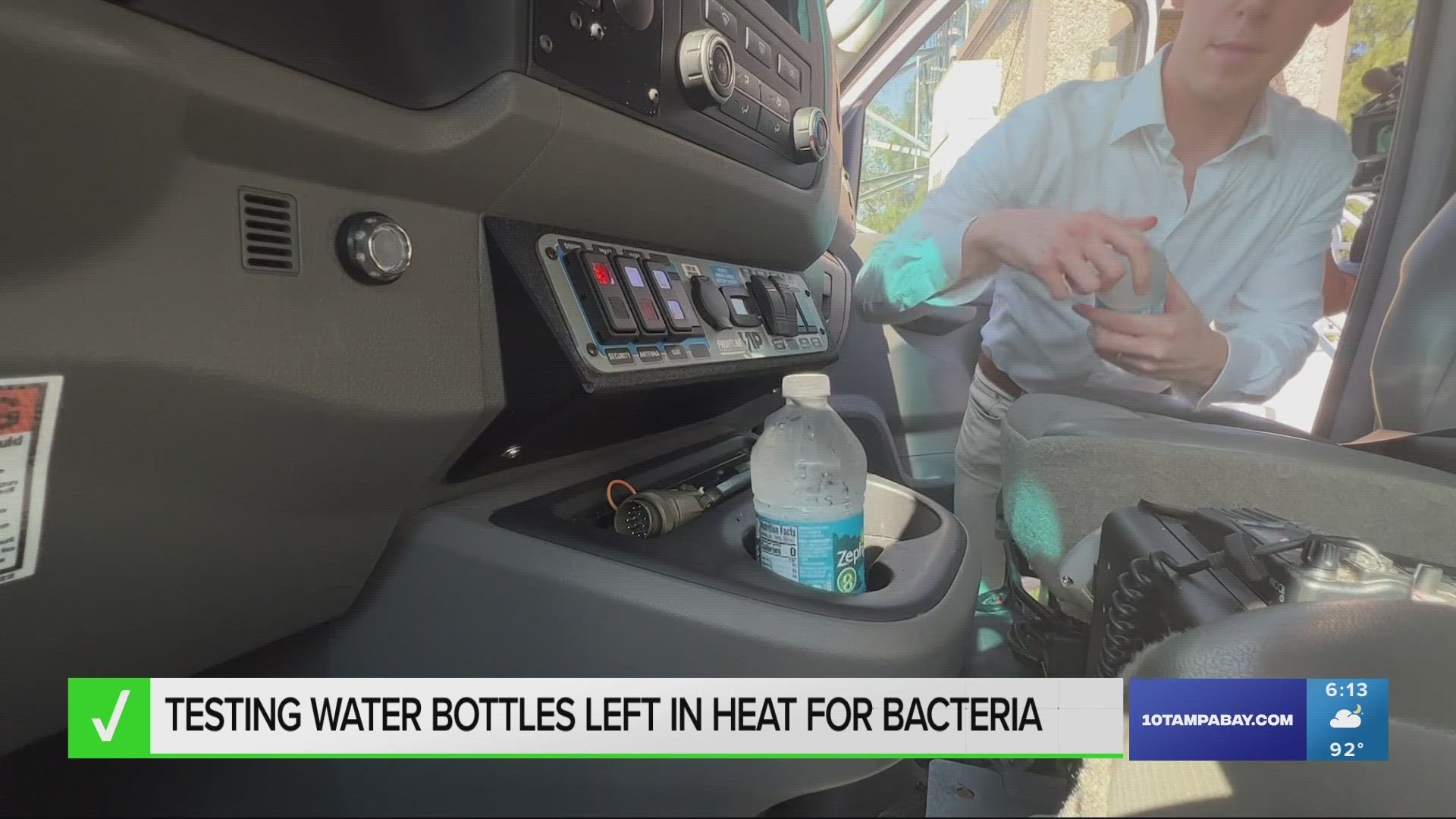TAMPA, Fla. — Staying hydrated is critical, especially during the summer heat in Florida.
But can the heat impact your bottled water?
VERIFY viewer Homero C. in Lakeland asked about the safety of plastic water bottles left in the heat – like in a hot vehicle – and specifically if high temperatures degrade the plastic and contaminate the water.
But VERIFY found bacteria could be a bigger issue, especially in unfinished water bottles left in the heat.
THE QUESTION
Can the heat impact your bottled water?
THE SOURCES
- Food and Drug Administration (FDA)
- Bill Carroll, Ph.D., chemistry professor at Indiana University Bloomington
- Christopher Reddy, Ph.D., chemist with Woods Hole Oceanographic Institution
- Steve Fickett, president of Thornton Laboratories
THE ANSWER
Yes, heat can impact your bottled water. While research has found that heat can leach chemicals into your water, it’s not at levels above safety standards. However, once you start drinking out of that bottle, leaving it in the heat can create a breeding ground for bacteria.
WHAT WE FOUND
Some people worry about chemicals from the plastic getting into the water if a plastic water bottle is left out in a hot car, but the experts VERIFY spoke with said that hot water bottles pose little risk in that regard.
Christopher Reddy, Ph.D., a chemist with the Woods Hole Oceanographic Institution, says that chemicals in plastic water bottles do slowly leach into the water over time, and this process is faster when the plastic is exposed to heat and sunlight.
But Reddy also said the mere presence of these chemicals does not necessarily mean they are toxic, or that there is enough of the chemical to be toxic. Ultimately, Reddy said, “it’s the dose that makes the poison.”
Studies from 2007 and 2014 found that water in plastic bottles didn’t have chemicals above EPA limits until about a month of constant exposure to the heat of a car left out in the midday summer sun.
“If I'm going to be concerned about anything, I'm going to be way more concerned about the potential for biological contamination than I am for the possibility of chemical contamination,” Bill Carroll, Ph.D., a professor of chemistry at Indiana University Bloomington, said.
VERIFY conducted its own, basic test for bacteria levels – taking an unfinished water bottle that had been sitting in a hot vehicle for three days to Thornton Laboratories in Tampa.
We also took a new, unopened water bottle in for testing that had been sitting in the same vehicle for the same amount of time for comparison.
The lab tested each bottle for total coliform and E. coli – bacteria.
“If either the E. coli or total coliform is present, it’s considered a failure in your drinking water,” Steve Fickett, president of Thornton Laboratories, told VERIFY.
The unopened bottle had no coliform or E. coli present, but the opened, unfinished bottle tested positive for total coliform which means it’s the perfect condition for E. coli to move in, too.
Put it this way, if this were the result of a public water system test, Fickett said, they’d have to issue a notice and conduct further testing.
Gross? Yes. But is it unhealthy?
Carroll concluded to our VERIFY team: No, as long as you're the only one drinking from the bottle.
Even if your water bottle is filled with bacteria, it likely won't make you sick because the bacteria introduced into the bottle is from your own mouth.
VERIFY's Emery Winter and Mauricio Chamberlin contributed to this report.

